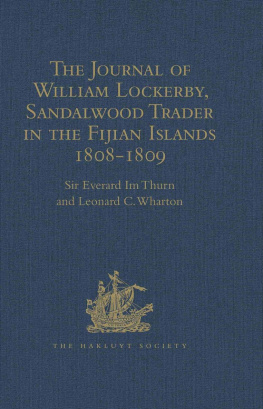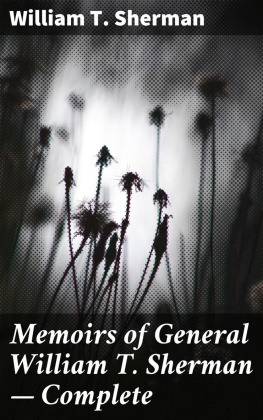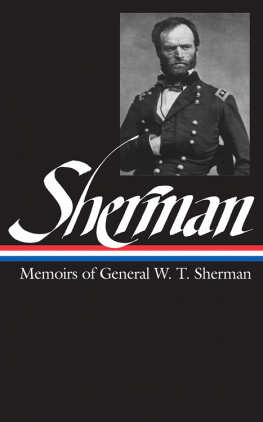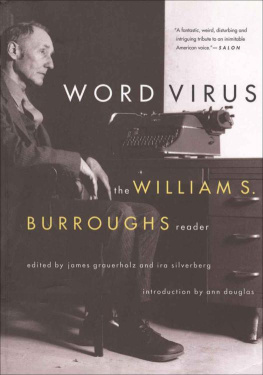
This edition is published by PICKLE PARTNERS PUBLISHING www.picklepartnerspublishing.com
To join our mailing list for new titles or for issues with our books contact@picklepartnerspublishing.com
Text originally published in 1909 under the same title.
Pickle Partners Publishing 2013, all rights reserved. No part of this publication may be reproduced, stored in a retrieval system or transmitted by any means, electrical, mechanical or otherwise without the written permission of the copyright holder.
Publishers Note
Although in most cases we have retained the Authors original spelling and grammar to authentically reproduce the work of the Author and the original intent of such material, some additional notes and clarifications have been added for the modern readers benefit.
We have also made every effort to include all maps and illustrations of the original edition the limitations of formatting do not allow of including larger maps, we will upload as many of these maps as possible.
LETTERS FROM THE
PENINSULA
1808-1812
BY LIEUT.-GEN. SIR WILLIAM WARRE
C.B., K.T.S.
EDITED BY HIS NEPHEW
THE REV. EDMOND WARRE, D.D., C.B., M.V.O.
WITH FRONTISPIECE AND MAP
TABLE OF CONTENTS
Contents
TABLE OF CONTENTS
LETTERS
PREFACE
Some years before his death in 1875, my father entrusted to me a packet containing letters written by his eldest brother, my uncle, Sir William Warre, from the Peninsula during his service there from 1808 to 1812.
The packet was not opened by me until the year 1908.
The letters, on perusal, seemed to be of interest, as giving a graphic description of the life and opinions of an officer serving on the Staff during the Peninsular War, and, in particular, of one immediately concerned in the organization of the Portuguese army.
Moreover, the letters, which are written on the spot and without reserve, being chiefly addressed to his father or mother, seem to reflect in some measure, as regards the campaign, and as to home politics, to which there are plentiful allusions, the conversation and opinions of the Headquarters Staff at the time; and further, the intimate acquaintance of the writer with the Portuguese character, and with the methods of the Portuguese Government, enhances the illustration of the difficulties which had to be overcome in the effort of Great Britain to save her ally from the crushing yoke of French imperial despotism.
Mr James Warre of Oporto, the father of Sir William Warre, was a man of great ability, and of influence both in Portugal and at home. He was a partner in the firm of Warre & Co., which was at the time one of the leading commercial houses in Oportoan old firm, established in the seventeenth centurywith which, however, the family connection was severed at the death of Sir William Warres brother George, in the year 1850.
The letters themselves, considering the circumstances under which they were written, are very fairly legible; but in places there are lacuna which are sometimes difficult to fill up. The orthography is not at all consistentoften old-fashioned, sometimes faulty. I have corrected it in some places, but in many have left it as in the original.
I cannot claim to have any particular knowledge of military history, and, as regards the brief introductions to the several chapters, wish to acknowledge in limine my indebtedness to Napiers great work, to Professor Omans three most interesting volumes, which bring the story of the war down to 1810, and to Sir Herbert Maxwells Life of the Duke of Wellington.
I am indebted also to my cousin, Mr George Warre, for help in translating the Portuguese words and phrases that occur in the letters.
My thanks are also due to my cousin, Mrs Wm. Rathbone, for kindly allowing me to use several of the collection of family letters in her possession, extracts from which help to fill up some of the gaps in the correspondence.
Lastly, I must acknowledge my debt of gratitude to my friend and publisher, Mr John Murray, for his most valuable help in many ways. Without his assistance, the map which illustrates the volume could not have been constructed.
EDMOND WARRE.
FI NCHAMPSTEAD, 1909
MEMOIR OF WILLIAM WARRE
William Warre, the subject of this Memoir, was the eldest son of James Warre of Oporto, and Eleanor, ne Greg, his wife. He was born at Oporto, 15th April 1784, and spent most of his childhood there. He was sent to Harrow, but seems to have left early, and to have been placed in the office of Messrs Warre & Co., of which his uncle, William Warre, was the senior partner, in order that he might learn the business which both his uncle and his father desired him to follow.
But his own strong wish was to be a soldier, and, as it turned out, a piece of mischief achieved that which arguments and entreaties had failed to obtain. One day in the office, when letters had to be got ready for the mail, the duty of sealing them, in which, after the fashion of the day much wax, red or black, was consumed, devolved upon the young clerk, who, observing that the pigtail of Pedro Alves, the Portuguese member of the firm, had lapped over to his side of the desk, while the old gentleman was enjoying a peaceful postprandial slumber, felt moved to play a practical joke, which had momentous consequences. He poured the red wax upon the ribbon of the pigtail, fastening it to the desk, sealed it with the seal of the firm, and fled. Great was the wrath that ensued. No apologies could be accepted. It was the end of his commercial career.
He was then sent to a private tutor at Bonn to learn foreign languages, and to prepare for the Army. On the breaking out of the war between France and Austria, he and another fellow-student joined the Austrians, and went out, as they said, to see the fun. As luck would have it, they were taken prisoners in a skirmish, and were brought before General Custine, who commanded the French force in the neighbourhood. Custine, seeing that they were English and mere boys, scolded them and told them that it was very lucky for them that Marshal Davoust had not arrived to take over the command, for, said he, he would have hanged you without mercy on the nearest tree. Now go back to your books and your tutor, and dont meddle with affairs which do not concern you.
Shortly after this William Warre was sent back to England, and on the 5th November 1803, when he was 19 years of age, received his commission in the 52nd Light Infantry, then under the command of Sir John Moore. He served with the 52nd till 25th April 1805, when he was promoted Lieutenant in the 98th, which was then in Canada. He did not, however, proceed thither, having purchased promotion as Captain in the 23rd Dragoons.
He served with this regiment in Ireland until the summer of 1807, when he was sent to the Royal Military College, then established at High Wycombe, to study for Staff employment
In 1808 General Ferguson selected him as A.D.C., and took him with him to Portugal. There he was present at the combat of Rolia, and at the Battle of Vimeiro, both of which are described in his letters. His health gave way under the hardships of this campaign, and he was detained ill at Lisbon for several months. His knowledge of the Portuguese language enhanced the value of his services, and after his recovery, General Ferguson having returned to England, he was attached by General Beresford to his personal staff, and served with him as his principal A.D.C. until the year 1812.









